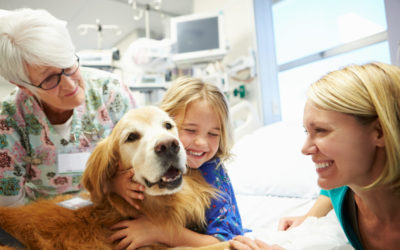Quick Hits
Daily brief research updates from the cognitive sciences

I presume you’re not just talking about stressed mothers stressing out their kids and/or grandchildren?
Not precisely. I’m talking about passing on stress activation patterns in DNA genetically.
Oh, that doesn’t sound good!
No, it isn’t good. We have known for quite a while that so-called epigenetic changes seem to be passed on to offspring.
What’s epigenetic?
All genes need to be activated and can be activated in different ways. Epigenetic markers are not a change in genes but how the existing genes are activated or not.
Ok, and this can be passed on?
Yes, the researchers from the University of Iowa, found out the precise mechanism. Clever things they are. But it is complicated. Basically instead of cleaning the hard drive, so to speak, and resetting genes, a protein released stops this “cleaning of the hard drive” and instead of the genes being reset the stress is passed on. Specifically in this case being present in unfertilised eggs.
And what changes?
In this case, Quote: “One of these newly silenced genes encodes the insulin receptor, which is central to metabolic changes with diabetes in humans, and which, when silenced, alters an animal’s physiology, metabolism, and stress resilience.”
Is this big news
Well, as I said, we already knew some of these things can be passed on. For example previous research has shown parents who have been though periods of starvation add an “eating” gene activation and this is passed on to children who are more likely to become obese. Read about that here.
Oh wow? So we should look after ourselves because the damage we do to yourselves can be passed on to our children.
Precisely!

Andy Habermacher
Andy is author of leading brains Review, Neuroleadership, and multiple other books. He has been intensively involved in writing and research into neuroleadership and is considered one of Europe’s leading experts. He is also a well-known public speaker speaking on the brain and human behaviour.
Andy is also a masters athlete (middle distance running) and competes regularly at international competitions (and holds a few national records in his age category).
Reference
Srijit Das, Sehee Min, Veena Prahlad.
Gene bookmarking by the heat shock transcription factor programs the insulin-like signaling pathway.
Molecular Cell, 2021
DOI: 10.1016/j.molcel.2021.09.022
More Quick Hits
Petting (Real) Dogs Activates the Social Brain
There have been lots of studies into the positive impacts of having pets around us – but this study just published looked at brain activation patterns while being with a dog, petting a dog, and…
Metabolism Predicts Brain Health
Understanding the link between dementia, brain health, and various metabolic disorders such as obesity is important and gives us important clues in…
Super Agers Have Super Neurons
SuperAgers are those who live long, over 80, but retain their cognitive functions including a healthy functioning memory and seem to avoid neurodegenerative disorders such as Alzheimer’s…
How Nature Lowers Stress in Your Brain
Nature is overwhelmingly good for wellbeing but there are many chicken-or-egg problems with the research. This study…
Correcting Others Improves Group Learning
Some interesting and counter-intuitive insights into effective group learning…
Air Pollution In Childhood Changes Brain Structure
Recent research has shown some worrying impacts of pollution on the brain…






